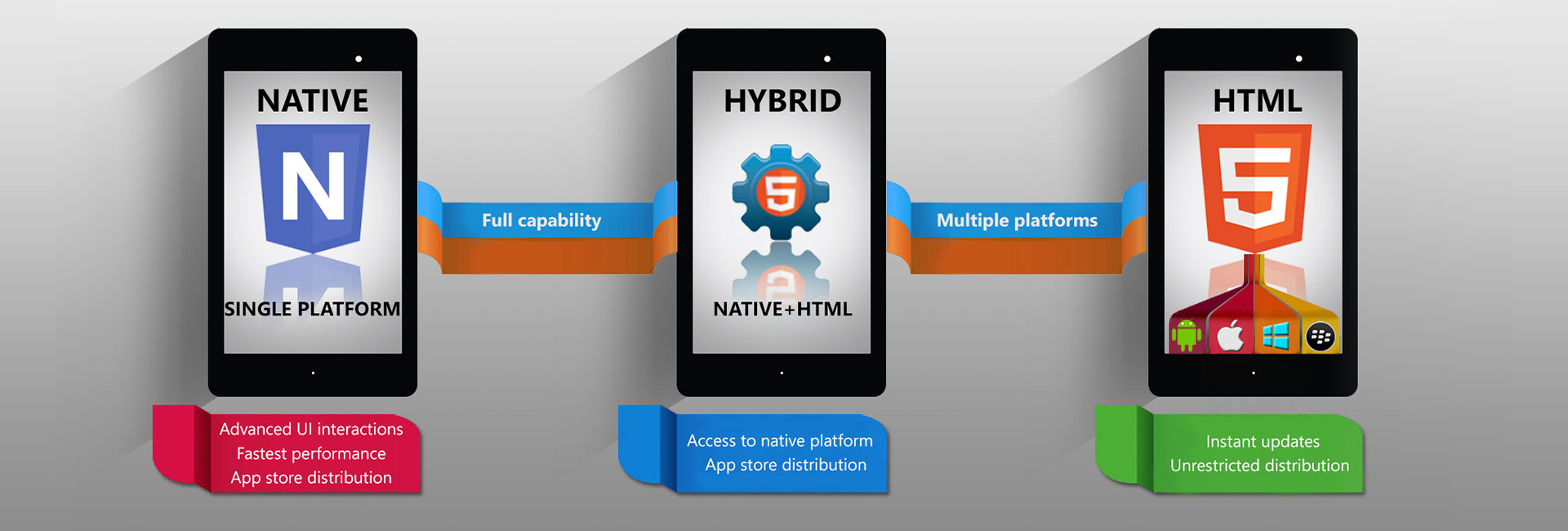Web, Hybrid Or Native Apps? What's The Difference?
Mobile apps have changed the way of our life as we know it. From managing our finances, day to day activities, entertainment, communication and much more, mobile apps have made tremendous changes in our lifestyle. They have a far-reaching impact on how we interact with the world. But when it comes to mobile app development company, there have to face many inherent misconceptions among the clients. When we talk about the mobile world, most of the businesses are concerned about the mobile apps which are facing a common issue which is which should they choose. Should they use a native app or mobile app? Hybrid apps have also added confusion to this. Well, the answer lies in the priorities of the company which is determined by various factors. First is the speed of the app which they want. The speed decides the usage of the app by the customers. Then comes whether they should develop a part of their house in-house or not. Another factor is the reason behind the app and what they want to achieve. What features they want is also one of the major factors.
In order to decide which app to select, it is important to know the differences between these app types. It is quite essential to know their advantages as well as disadvantages of each in order to find out which approach is best when it comes to materializing the app idea.

These applications are generally website which provides interactivity feeling just like a mobile app. These web apps often run on different browsers such as Google Chrome, Firefox, Safari, the well-known browsers. They are often written either in HTML5 or in JavaScript. In case you are a startup or a small size business, and you have budget constraint along with less requirement of complex features and functionalities or access to various OS features, then building a web app is the best option to consider. Web app development is considered to be the least expensive as they provide flexibility in the budget.
However, the major disadvantage is that these apps are quiteWhen it comes to a hybrid app, then the first thing that comes into the mind is the word hybrid. It means that hybrid app is a combination of native as well as web apps. It can be easily distributed through various app stores, and they also come with operating system features. However, like a web app, these types of the app can be used on web technologies which are cross-compatible.
Hybrid apps are quite easier to develop, and they can also be created in less time than compared to native apps. That’s why Hybrid application development has become a trend. Another salient feature is that they require a low amount of maintenance. However, the speed of this type of app depends on the browser speed of the user. It essentially means that hybrid apps can’t run fast in comparison with native apps.
The key advantage of hybrid apps is that one can easily build them on one base which provides
So the question arises, which app should be used? Well, in order to make a perfect choice, it is quite important to understand the difference between these app types in order to determine which path to follow. All of these apps have their inherent advantages as well as weaknesses. The decision solely depends on the requirement of your company.
Once you have considered your options, it is


 Ajay
Ajay






